Sign up now for Teach Truth Day of Action 2024.
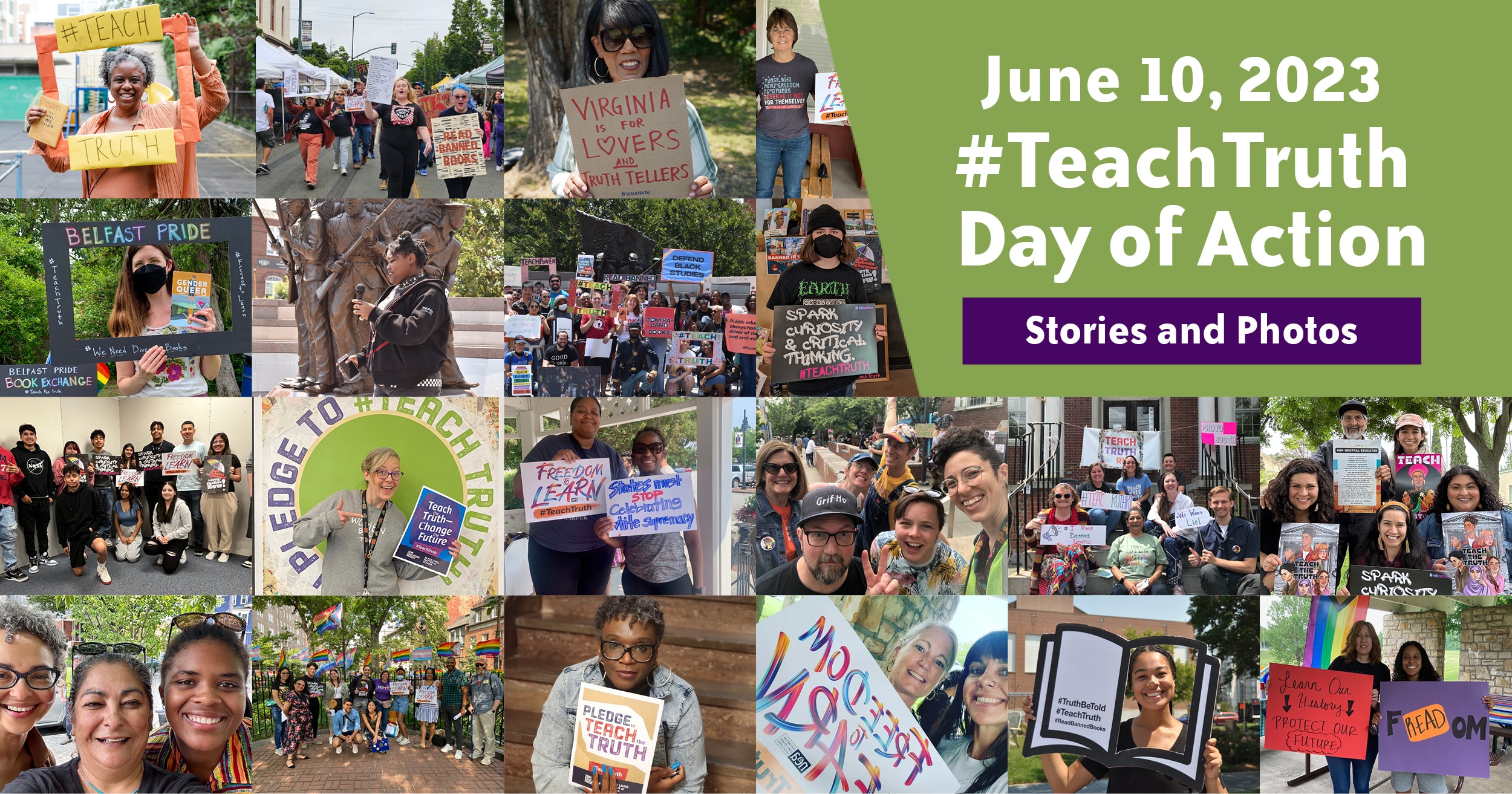
In dozens of cities, teachers and allies rallied to raise awareness about the threats to public education, LGBTQ+ students, and democracy. These days, a complaint by one individual can lead to a book being pulled from the shelves. During this third annual Teach Truth Day of Action, participants modeled that a different response is possible. Instead of buckling to a well-funded hate campaign, we can defend the freedom to learn.
The anti-history education legislation and book bans are led by the same forces passing laws against voting rights, gun reform, trans rights, climate justice, and more. These laws and policies endanger the wellbeing of students, staff, and communities. As Dr. Kimberlé Crenshaw said at our Teach Truth event on Monday evening,
We have the Lost Cause on steroids, because we’re talking about a very few, a minority of a minority, being able to dictate the terms by which we can know our own lives and the terms by which we can create our own futures.
Teachers, families, students, and allies are speaking out to say that these attacks on education are a threat to us all. The Washington Post shared examples of teachers and students testifying to the school board in Hernando County, Florida. The Freedom to Learn network hosted events around the country on May 3. The Transformative Justice Coalition and the NAACP-Florida are hosting a “Stay Woke Rolling Protest” in Florida. Below are some events from the June 10 Teach Truth Day of Action. Many cosponsors, listed below, are engaged in campaigns to resist the anti-history education and anti-LGBTQ+ laws. Our future depends on an informed public to address the crises in the world today.
Events
The creative engagement teachers seek to defend in the classroom was evident in the range of the day of action activities. Here are some examples.
Teach-Ins and Classes
Organizations held teach-ins and classes on the history under threat in public schools and on lessons from history about how to organize today. Here are examples,
- Roots to Revolution, a cosponsor of the day of action, hosted two teach-ins on LGBTQ+ history, one in New York at the Stonewall Inn and one in New Orleans at the Tate, Etienne, Prevost (TEP) Center in collaboration with the ACLU of Louisiana.
- Fifty people joined the Seattle Student Union, NAACP Youth Council, WAESN Youth Advisory Board, WA LYAC, and students of Seattle Public Schools for a teach-in and story share at Washington Hall.
- The Educators’ Cooperative in Nashville hosted workshops on Fugitive Pedagogy, a book about the role of African Americans as truthtellers during the Jim Crow era. Relevant to the conditions teacher face today, a participant noted, “We are doing the work that needs to be done — not reading about it, not dreaming about it, but actively doing it.”
- Two of the cosponsors offered virtual events so that people throughout the country could participate. The Pulitzer Center’s 1619 Project Education Network hosted “Teaching Truth: Cultivating Curiosity and Compassion with ‘The 1619 Project’.” Alan Singer of Historians for Peace and Democracy hosted “Responding to Attacks on Critical Race Theory and DEI.” They showed the video Critical Race Theory and DEI with Francesca López, Alan Singer, and Jeremy Young and then discussed strategies for responding to attacks.
- The Zinn Education Project hosted a conversation with Dr. Kimberlé Crenshaw on June 12 as part of the Teach the Black Freedom Struggle online people’s history series and in coordination with the Teach Truth Day of Action.
Talks at Historic Sites
Public events were held at historic sites. The presenters, often with first-hand knowledge, shared the history now off limits from instruction in many states. For example,
- A representative from the David Ruggles Center gave a talk about Sojourner Truth’s role as an abolitionist and feminist at her statute in Northampton
- A descendant of the Rosewood Massacre shared stories from her upcoming children’s book at the site of the Florida massacre
- A Chicano Moratorium participant shared a history lesson at Ruben F. Salazar Park in Los Angeles
- Two veterans of the Student Nonviolent Coordinating Committee, Judy Richardson and Dr. Frank Smith, spoke about the fight for voting rights and education from Reconstruction to today at the African American Civil War Memorial in Washington, D.C.
- Tours were offered at the T. Thomas Fortune Cultural Center in Red Bank, New Jersey
- In Richmond, teachers met at the Sacred African Burial Ground where they learned about the history of the site and held a banned books swap
- Teachers gathered at the George Fish School marker in Fort Mill, South Carolina, a school for African Americans from 1926 – 1968
- Events were also held at the Buffalo Bayou Park in Houston, Battle Monument in Princeton, and more sites
Walking Tours and Marches
Walking tours offered history lessons and raised the interest of passersby. Here are some examples,
- Educators and families marched from the Bainbridge Museum in Washington to the public library, following a panel discussion June 10 on the need to protest book bans and laws that restrict the teaching of racism, white supremacy, and LGBTQIA+ topics in schools
- In Atlanta, participants learned how residents of Shermantown, the historically Black community adjacent to Stone Mountain, had long protested the Confederate memorial
- In Lansing, participants walked from the site where Earl Little (Malcolm X’s father) was killed to the hospital where he died. They chalked messages along the way and delivered banned children’s books to the hospital
- In Salem, young people toured sites related to the town’s abolitionist history
- After making signs and learning about the Black Panther Party history, more than 60 educators marched to its former headquarters in Boston.
Bookstore and Library Programs
Teachers collaborated with local bookstores to create exhibit space about banned books, offer presentations, and invite participants to take action. These were in Albuquerque, Amarillo (Texas), Bellevue, Bellingham, and Bremerton (Washington), Brevard County and Fort Lauderdale (Florida), Lancaster, Loudon County (Virginia), Montgomery, New Haven, Ogden, Providence, Vallejo (California), and Wendover (Nevada). Local bookstores tabled at some of the public events.
Public Gatherings and Festivals
Public rallies featured speakers, music, food, crafts, information tables, letter writing to elected leaders, sign making, and more.
These were in Newark and Neptune, New Jersey; Kansas City; Philadelphia; Providence; and Iowa City.
School Activities
Teachers and families held book swaps and forums at schools in Berkeley, Brattleboro, Brooklyn, Lancaster, Portland, Renton, San Rafael, and St. Paul.
Union Meetings and Messaging
Union members addressed the threat to public education and expressed solidarity with the teach truth campaigns in Arizona and New Jersey. The Milwaukee Teachers’ Education Association shared a series of solidarity messages on social media, featuring teachers and librarians, including Waukesha, Wisconsin, elementary teacher Melissa Tempel, recently fired for speaking out about a district decision to ban “Rainbowland” by Miley Cyrus and Dolly Parton from a spring concert.
More Photos and Stories
See the list of events with photo and stories by state and city.
Cosponsors
In collaboration with the cohosts (Zinn Education Project, coordinated by Rethinking Schools and Teaching for Change, Black Lives Matter at School, and the African American Policy Forum), more than 50 cosponsors played a major role in the events’ planning and outreach. For example, the National Education Association provided strategic support on media, secured many of the major cosponsors, produced and sent posters to sites, engaged top leadership in the press call, and did outreach to members. SURJ also provided media support. Red, Wine, & Blue, GLSEN, USHLI, and the Human Rights Campaign provided speakers for the orientation sessions and/or the press call. The Monument Lab recorded a podcast with Zinn Education Project staff member Jesse Hagopian. Many of the cosponsors hosted local or online events, including the Coalition for Liberated Ethnic Studies, Learning for Justice, Pulitzer Center’s 1619 Education Program, Red Wine & Blue, Roots to Revolution, Stonewall National Museum and Archives, and the United States Hispanic Leadership Institute. Others cosponsored local events.
News Coverage
The 2023 Teach Truth Day of Action was featured in local news stories, podcasts, and national news outlets. Check out the stories.
Testimonies
Authors, athletes, teachers, and historians have recorded messages of solidarity.
Take Action All Year Long
The “day of action” continues. We invite everyone to make your defense of truthful education visible all year long.
- Pick a site that should be taught — it can pertain to history, voting, climate, housing, LGBTQ+ rights, etc.
- Gather with family, friends, and/or students students to “teach truth.”
- Take a photo with a sign (one of these or make your own).
- Share on social media with #TeachTruth and/or email to zep@zinnedproject.org

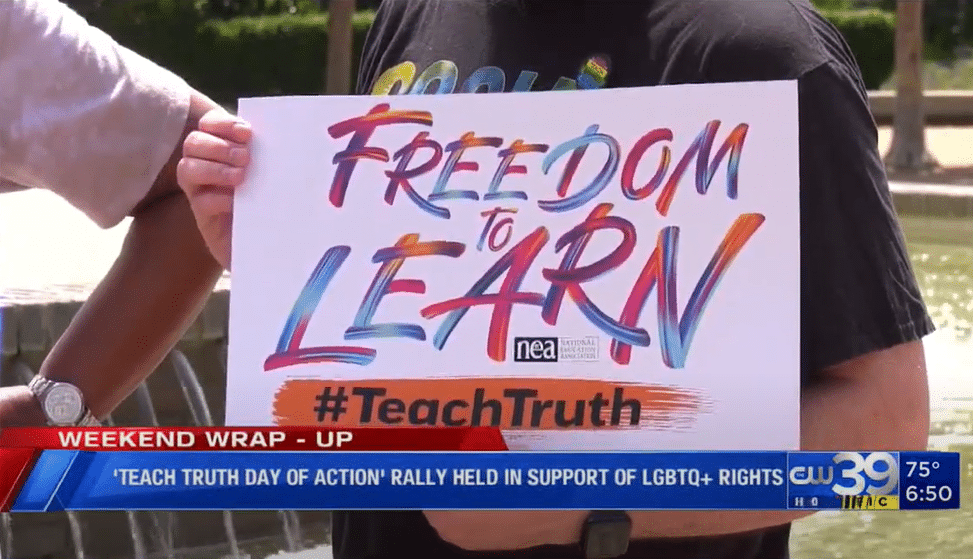
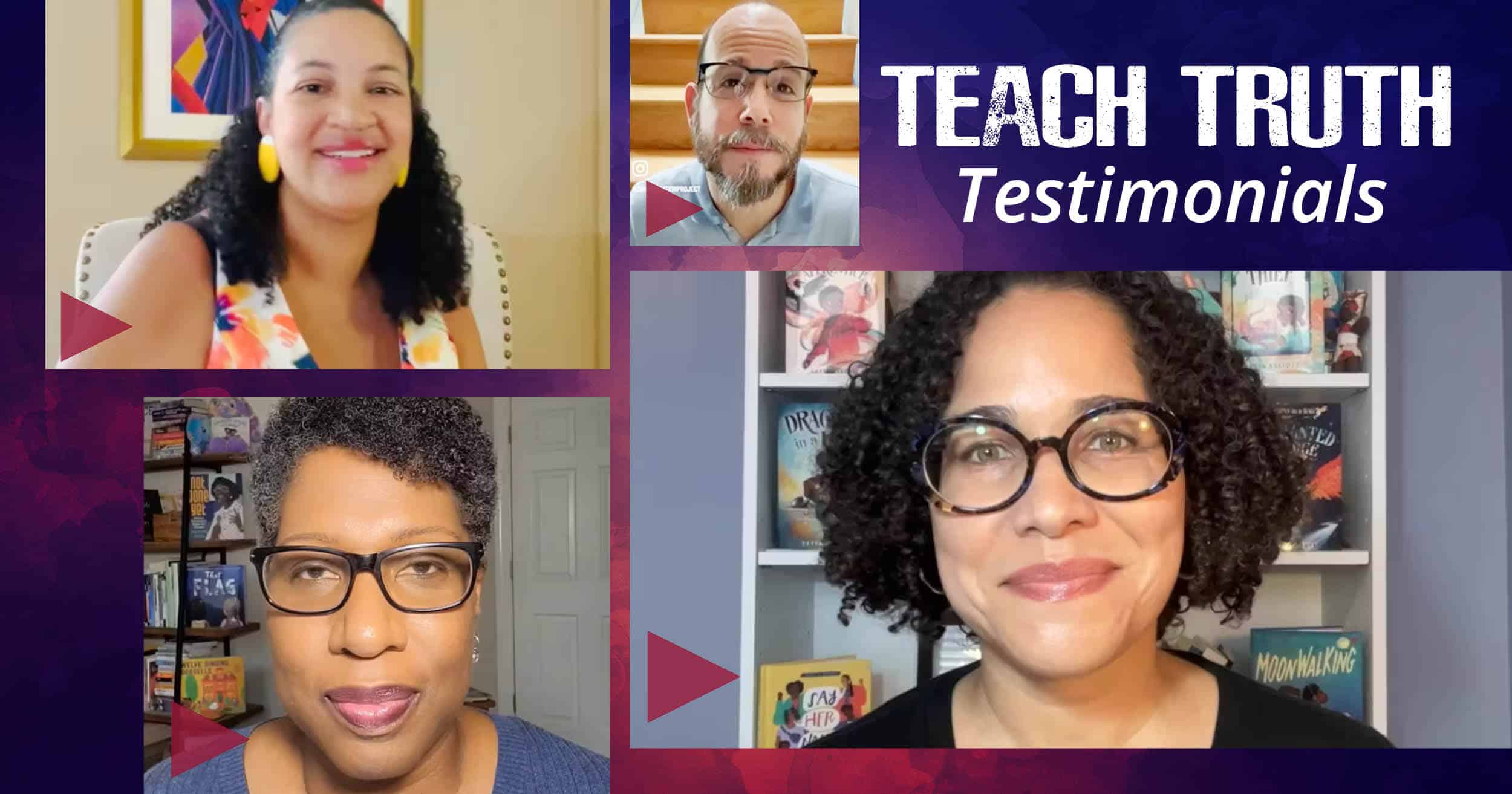
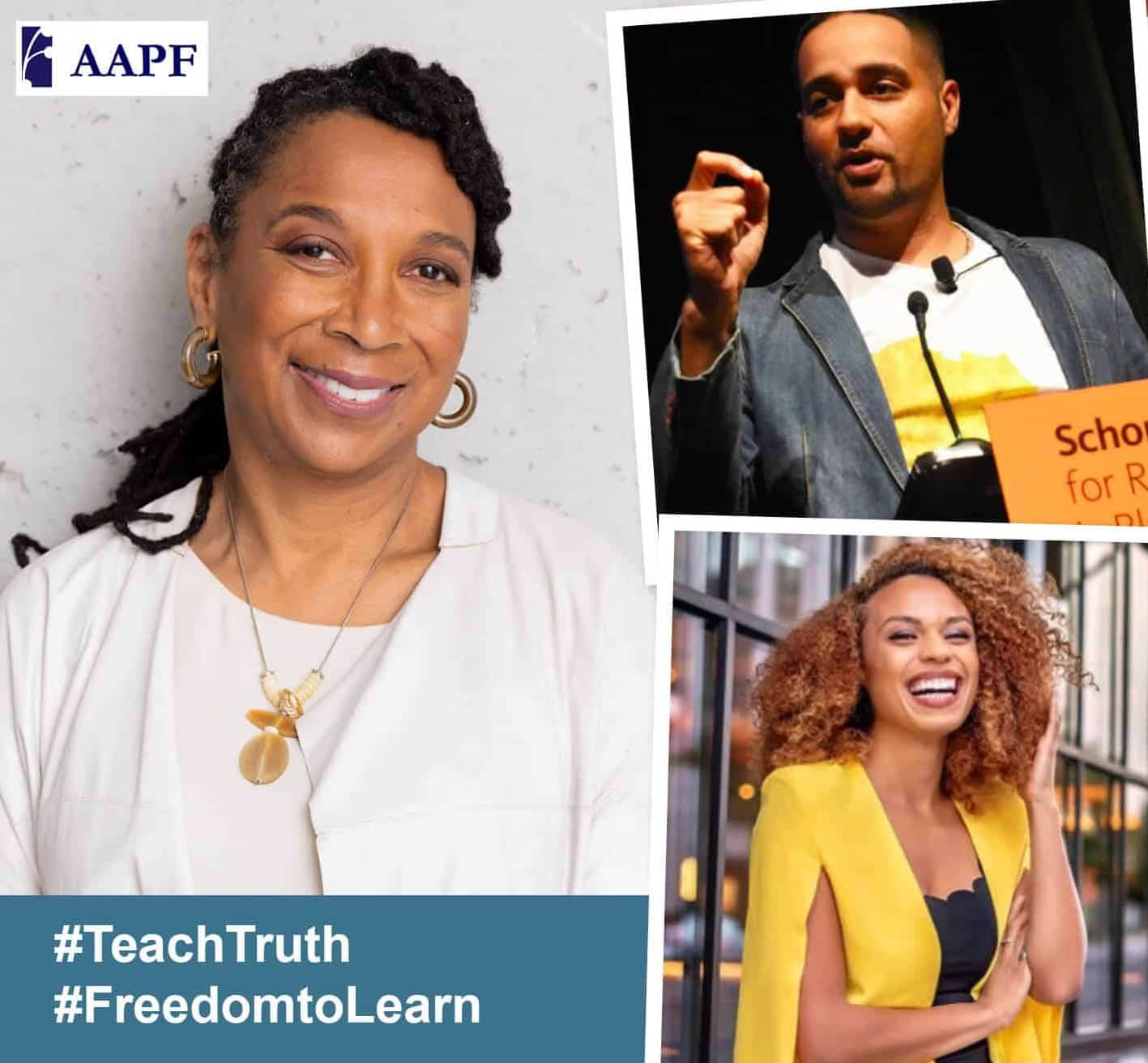
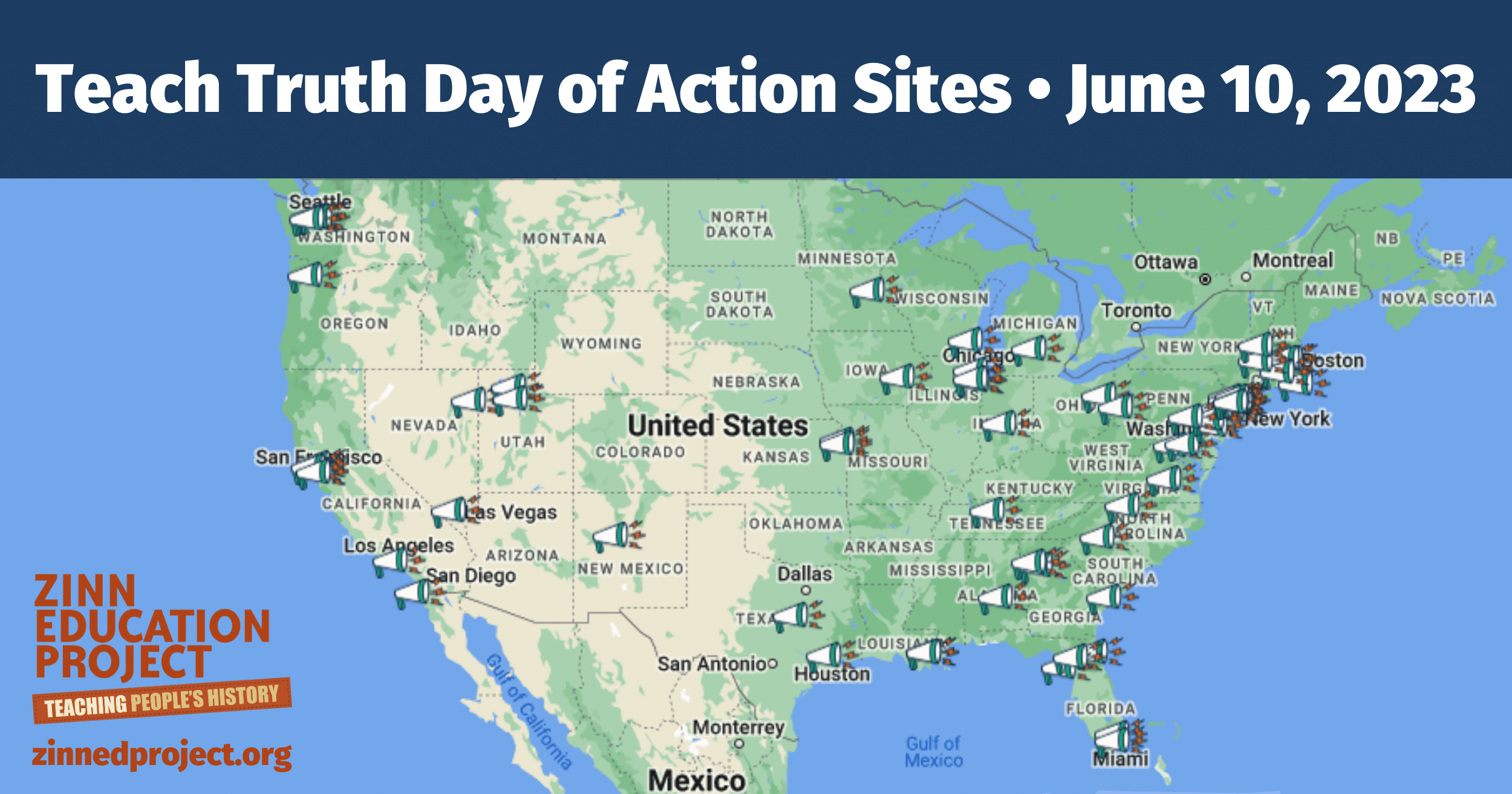





Twitter
Google plus
LinkedIn